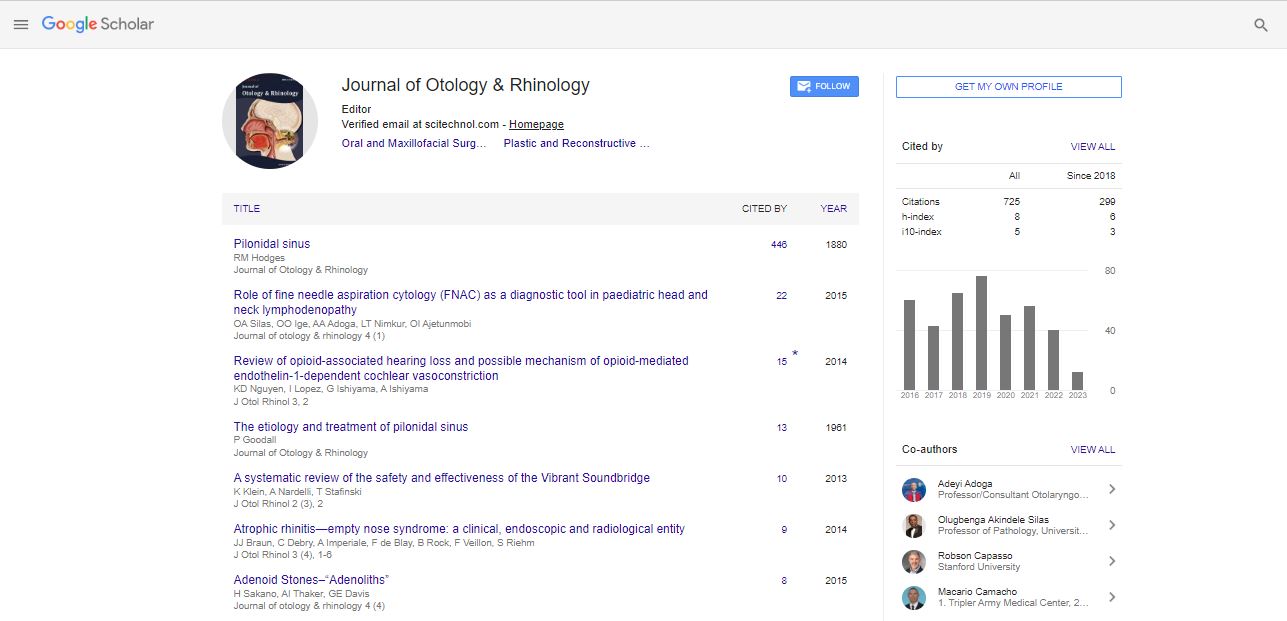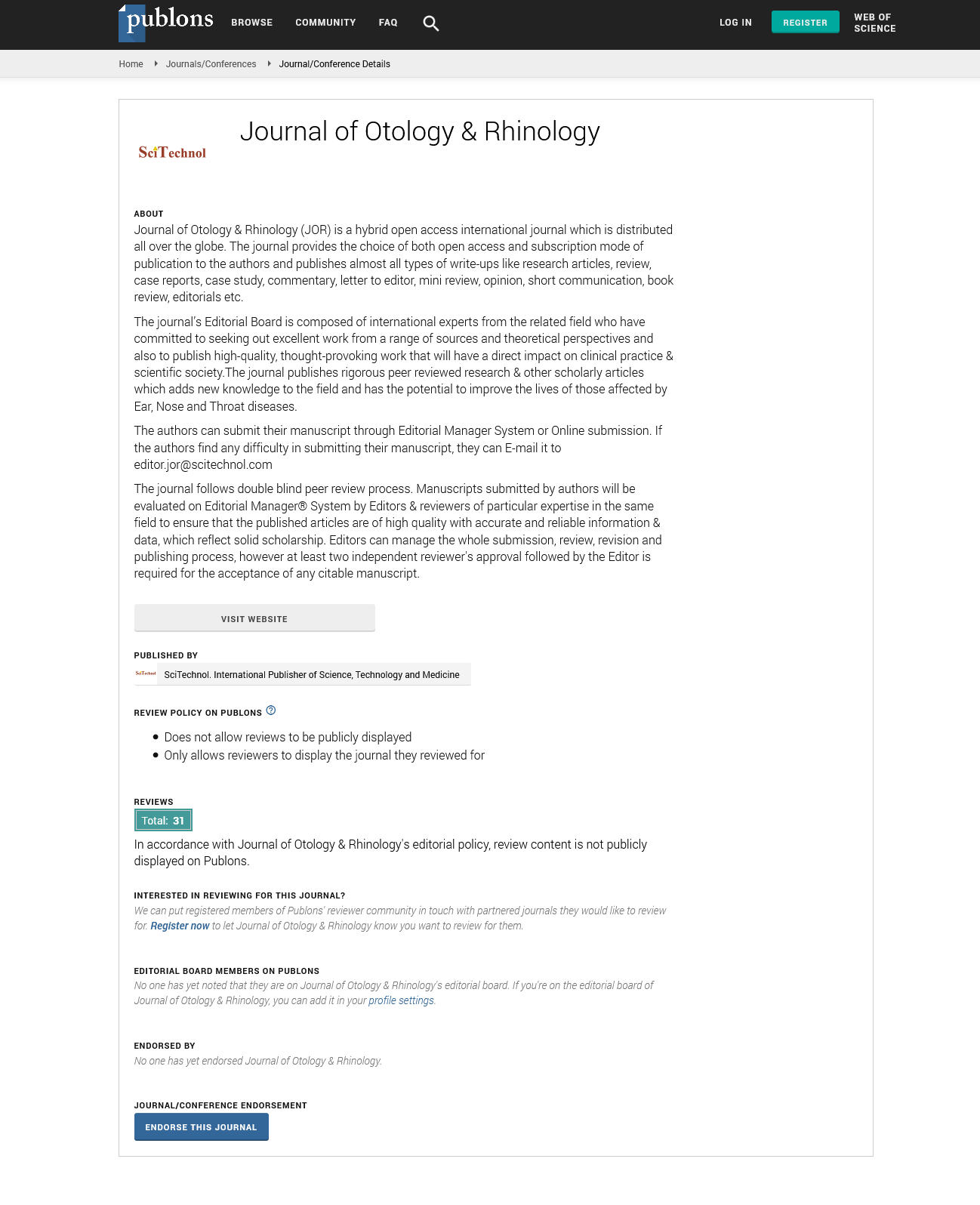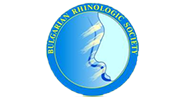Commentary, J Otol Rhinol Vol: 12 Issue: 5
The Multifaceted Effects of Ageusia on Life and Health
Rawi Arayedh*
1Department of Oral and Craniofacial Health Sciences, University of Sharjah, Sharjah, United Arab Emirates
*Corresponding Author: Rawi Arayedh,
Department of Oral and Craniofacial
Health Sciences, University of Sharjah, Sharjah, United Arab Emirates
E-mail: rawiarayedh@gmail.com
Received date: 18 August, 2023, Manuscript No. JOR-23-118309;
Editor assigned date: 21 August, 2023, PreQC No. JOR-23-118309 (PQ);
Reviewed date: 04 September, 2023, QC No. JOR-23-118309;
Revised date: 11 September, 2023, Manuscript No. JOR-23-118309 (R);
Published date: 18 September, 2023, DOI: 10.4172/2324-8785.100068
Citation: Arayedh R (2023) The Multifaceted Effects of Ageusia on Life and Health. J Otol Rhinol 12:4.
Description
Ageusia is a rare and intriguing condition characterized by the total loss of the sense of taste. The sense of taste, or gustation, plays a vital role in our lives, influencing our dietary choices and overall sensory experience. Ageusia, a condition characterized by the complete absence of taste perception, is a rare but fascinating disorder that has garnered attention due to its profound impact on the affected individuals.
Etiology
Ageusia can be caused by various factors, including:
Neurological disorders: Conditions such as Bell's palsy, multiple sclerosis, and certain brain injuries can damage taste receptors or the neural pathways responsible for taste perception.
Medications: Some medications, like antibiotics and antithyroid drugs, can lead to a temporary loss of taste sensation.
Radiation therapy: Patients undergoing radiation therapy for head and neck cancers may experience ageusia as a side effect.
Viral infections: Viral infections, like the herpes simplex virus, can affect the taste buds and result in ageusia.
Nutritional deficiencies: A lack of essential nutrients, such as zinc, can impair taste perception.
Clinical presentation
Ageusia presents as a complete loss of taste perception. Affected individuals may find that all food and drink become bland, and they are unable to discern different flavors. This can have a profound impact on their eating habits and overall nutritional intake. Other related symptoms may include a diminished sense of smell (anosmia) and a sense of altered texture perception.
Diagnosis
Diagnosing ageusia often involves a comprehensive medical history, a physical examination, and sensory tests. Patients may be asked to identify various taste stimuli (sweet, sour, bitter, salty) and rate the intensity of these tastes. In cases of ageusia, individuals are likely to score poorly on these tests, confirming the absence of taste perception.
Impact on quality of life ageusia can have significant consequences for an individual's quality of life. Eating becomes a utilitarian act rather than an enjoyable one. Affected individuals may lose interest in food, leading to nutritional deficiencies and weight loss. Social and psychological impacts may include feelings of isolation, depression, and a sense of disconnection from the pleasure of eating.
Treatment and management
• The treatment of ageusia primarily depends on its underlying cause:
• For cases related to medications, cessation or modification of the drug may lead to the return of taste sensation.
• In cases related to nutritional deficiencies, supplementation can help alleviate the condition.
Management of ageusia in neurological disorders is more complex and may involve rehabilitation, taste training, and psychological support.
Research is ongoing in the development of therapies to restore taste perception, such as taste bud regeneration and nerve repair techniques. However, these treatments are still in their experimental stages. Scientists continue to investigate the underlying mechanisms of taste perception and ageusia. Advancements in regenerative medicine, nerve repair, and neurology may hold promise for the development of more effective treatments for this rare condition.
Ageusia is a rare but significant disorder that has far-reaching implications for those who experience it. The loss of taste perception affects not only eating habits but also the emotional and social aspects of life. Understanding the causes, diagnosing, and managing ageusia is important to improving the quality of life for affected individuals. Ongoing research in the field of taste perception and the development of potential treatments offer hope for those living with this condition. Increased awareness and interdisciplinary collaboration among healthcare professionals are essential to addressing the unique challenges of ageusia and working towards improved outcomes for those affected.
 Spanish
Spanish  Chinese
Chinese  Russian
Russian  German
German  French
French  Japanese
Japanese  Portuguese
Portuguese  Hindi
Hindi 


